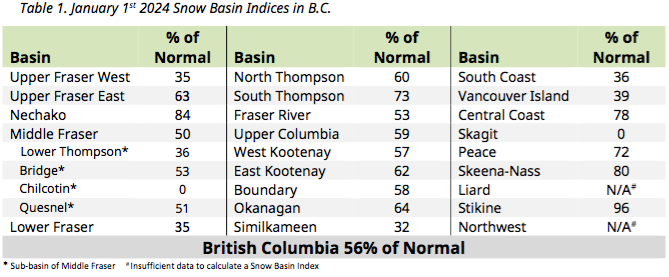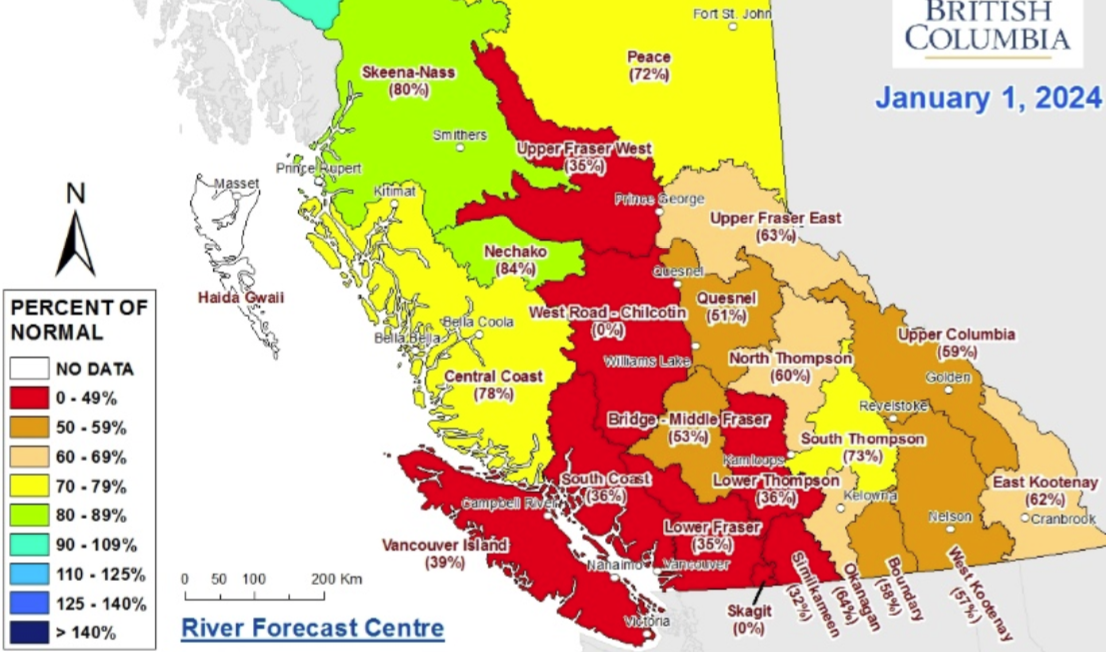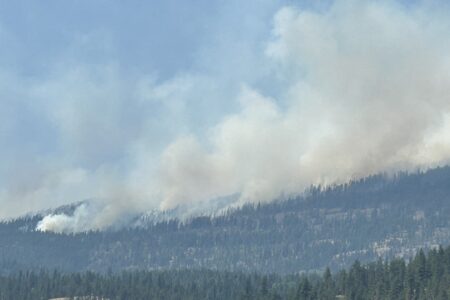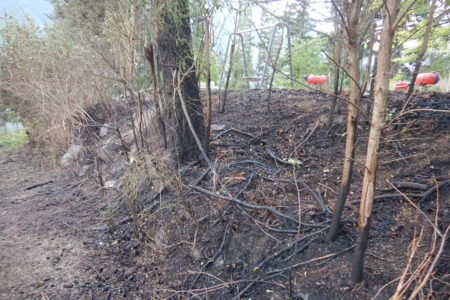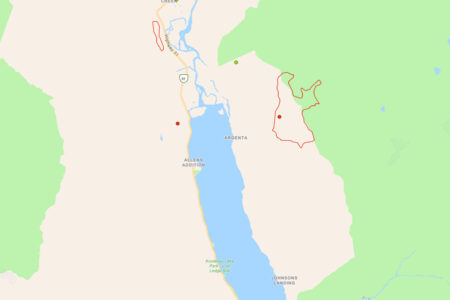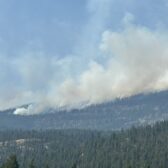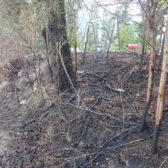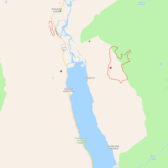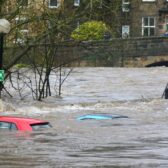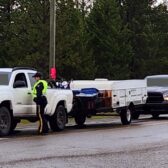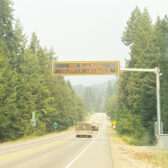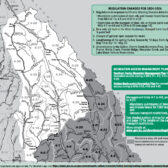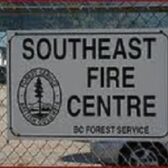Nelson snowpack station records lowest accumulation on record
A Provincial snow measuring station near Nelson measured its lowest total on record as the region and the province struggles with an extremely low snowpack, according to the latest Snow Survey.
Published by the Ministry of Water, Land and Resource Stewardship, the Snow Survey and Water Supply Bulletin noted the snowpack at the snow station southwest of Nelson was 25 per cent on Jan. 1, the lowest in 63 years.
Across the West Kootenay, the snowpack is 57 per cent of normal, just above the average for the province (56 per cent), but is considered extremely low. Last year, the provincial average was 82 per cent on Jan. 1.
“There are early concerns for drought extending into the spring and summer with the extremely low snow pack throughout the province,” the report noted.
But with more than three months left for snow accumulation, seasonal snow packs can still change significantly based on weather patterns through the remainder of the season, it was noted.
For the second year in a row, drought extended into the fall for the region, with October drier and warmer than normal, November temperatures ended up near normal due to a significant cold period, while December temperatures were extremely warm relative to normal.
The best indicator during the winter of potential water scarcity concerns for the upcoming summer are the snow basin indices.
“Upcoming challenges related to drought could include water supply issues, low groundwater levels, inadequate river levels for cultural needs, environmental flows, agricultural use, power generation, recreational use, wildfire risk, and more,” the report noted.
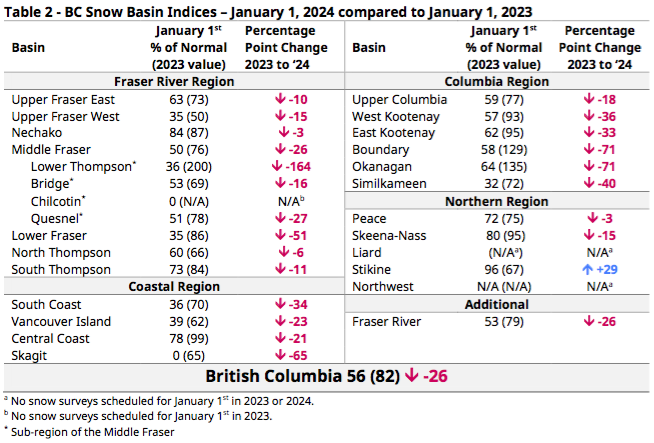
Weather watch
There is an El Niño advisory in effect for 2023-24, according to the Climate Prediction Center (CPC) at the U.S. National Weather Service.
El Niño is the warm phase of the El Niño-southern oscillation (ENSO), and it is expected to continue through the North American winter.
“This is the first El Niño winter season since 2018-19,” the report noted. “Typically, El Niño is linked to warmer winters across British Columbia. During El Niño, snow packs tend to be lower than normal; however, there has been a large range of variability in snow pack in B.C. during El Niño winters in the past.”
There is a greater likelihood of above normal temperatures for the West Kootenay and B.C. from January through March, according to seasonal weather forecasts from the report. However, precipitation is not showing any dominant trend of above normal or below normal precipitation.
